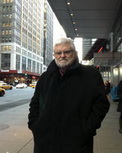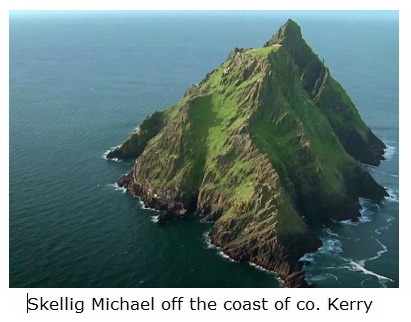 Chris
McDonnell, UK
Chris
McDonnell, UKchris@mcdonnell83.freeserve.co.uk
 Chris
McDonnell, UK
Chris
McDonnell, UK
chris@mcdonnell83.freeserve.co.uk
Previous articles by Chris
Comments
welcome here
September 6, 2017
The associations of place

Often when we meet someone for the first time, our conversation will include a question 'Where do you come from?'
The answer can lead us to confirm 'I know it well' or 'No, I haven't been there.' Either way, there is an opening for exchange, a chance to dig a little deeper and appreciate another's story.
We have a great need to feel comfortable in our location, a place becomes a nest with the security of familiarity. The longer we are there, the deeper go the roots, the connections with the geography and with the people around us. Moving can be a stressful experience as connections are broken and we begin the process of resettlement somewhere else.
I wonder how often we appreciate the plight of the refugee whose links with others are so disrupted, the left-behind story of people, places and possessions. These images from many parts of the world have become a familiar story, the dislocation of peoples through natural disaster or conflict. Now in recent days we have seen the catastrophic floods that have swept through Southern Texas and the city of Houston in particular. A modern, highly technical city in the western world devastated by huge rainfall as Hurricane Harvey became a tropical storm.
The wide streets became flowing rivers, homes were inundated and lives were lost. A place of identity radically altered as a weather system, apparently aggravated by global warming, unleashed a fearful force of destruction.
In contrast to the huge city sprawls that have been the story of the 20th century, there is the small island refuge, the spot of land offshore, a place apart. There can be found a contentment that doesn't rely on possessions but whose raw beauty offers something else. The few words that follow come from a piece call 'Island', written in 2008.
'Move out to the margin /and silently watch the surging sea /break on the sand edge, smooth stones /and shale, rolled and salt washed. // High on the hill, gathered stones /give shelter from the Western wind /building across a broad, open sky, the /full spread glow of late Autumn sunset.// Open grassland, treeless and torn by rage./ Empty distance beyond the fence,/ where sea-wail and sky-howl /touch the moon-cold night. //This awesome place of utter loneliness /where words lead back in loops /unless abandonment is complete,/ this distant, desolate, island home.'
It is no small wonder that such places became settled by monks, islands such as Iona and Lindisfarne and countless others round the shores of the larger land masses of this Earth.
Yet it is possible for each of us to have our own 'island' in the midst of our town or city. A small place of identity that is valued for what it is and the calm that it offers. It might be a space in our home where a crucifix or icon offer a focus, a still point in our turbulent world. Or a spot near home where a river or canal offer a peaceful atmosphere for reflection and prayer. It could be in the town itself where a seat in a coffee house allows space to read and reflect or maybe share time with another who needs our company. Our own still points, our islands, are many and varied. Part of our experience on our journey is to find those personal places, to discover that point of inspiration for sustenance on the way.
The place that we call home, our Christian faith, can be problematic in so many ways. Sometimes the other pilgrims get on our nerves, as we do on theirs. We get confused by patterns of behaviour that seem in direct contrast to the Jesus story. We get bored with our surroundings and seek to enliven the place we call parish or diocese. We blame others when rough times arrive. It's always their fault, never ours. But it doesn't hurt to hold up a hand of acknowledgement now and then as we try to do better. There was honesty in the remark of John XXIII who, when asked how many people worked in the Vatican, responded with the laconic line, 'about half of them...'
So in looking for change in the Church, a bit of self-examination is no bad thing. It can be done in our personal place or it can be achieved in the company of others, by talking and listening. One without the other is a waste of space if we wish to move forward together offering Christ to a troubled world.
In the days of the Apollo missions to the Moon, the explosion on the service module of Apollo 13 produced that famously under-stated line by astronaut Jack Swigert, 'OK Houston, we've had a problem here'. Now Houston itself has a problem. We are all temporary tenants, let's take care of our home.
END